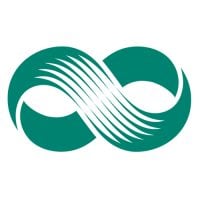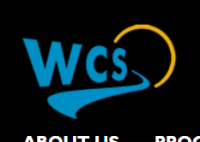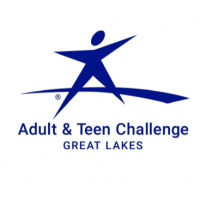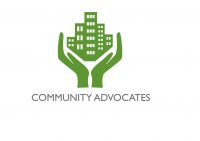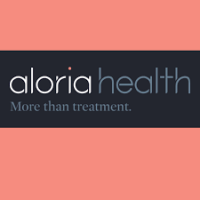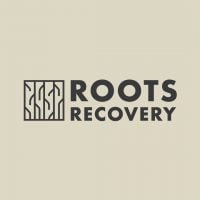Landmark Recovery of Milwaukee
Drug Rehab Center in Greenfield, Wisconsin
Landmark Recovery of Milwaukee in Greenfield, Wisconsin offers inpatient and outpatient addiction treatment programs that empower clients to recover from drug and alcohol addiction and prevent relapse through comprehensive and individualized care.
About Landmark Recovery of Milwaukee in Wisconsin
Landmark Recovery of Milwaukee, situated in Greenfield, Wisconsin, is a premier inpatient and outpatient drug and alcohol addiction treatment center. With a mission to empower clients with the skills and knowledge needed to overcome addiction and prevent relapse, Landmark Recovery of Milwaukee offers comprehensive, individualized treatment programs delivered by a multidisciplinary team of addiction experts and mental health professionals.
• Evidence-based, holistic care targeting the physical, psychological, and spiritual needs of individuals and their families
• Individualized treatment plans tailored to each client's specific needs
• Medication-assisted treatment using FDA-approved medications to reduce cravings and withdrawal symptoms
• Comprehensive services including individual therapy, group therapy, aftercare, family support programs, and relapse prevention
Landmark Recovery of Milwaukee is accredited by the Joint Commission (JCAHO) and LegitScript, ensuring the highest standards of care. Their programs adhere to the licensure regulations set by the Wisconsin Department of Health Services, demonstrating their commitment to providing quality, evidence-based treatment.
The center specializes in treating alcoholism, drug addiction, mental health issues, substance abuse, and opioid addiction. They employ a variety of treatment methods, including cognitive-behavioral therapy, dialectical behavior therapy, and motivational interviewing. Landmark Recovery of Milwaukee offers multiple levels of care, such as inpatient treatment, partial hospitalization, intensive outpatient, and standard outpatient programs, allowing clients to receive the appropriate level of support throughout their recovery journey.
Genders
Ages
Modality
Additional
Accreditations

LegitScript

JCAHO
Conditions and Issues Treated
Substance abuse is the excessive use of any drug. This includes alcohol, medications, and illegal drugs. Substance abuse is treated with a combination of physical and mental treatments. Patients detox and follow up with therapies that target the underlying cause of the addiction. Substance abuse is a severe problem that can be successfully treated with a variety of therapies. Landmark Recovery of Milwaukee treatment uses a combination of therapies along with other resources to overcome substance abuse.
Levels of Care Offered
This center offers a variety of custom treatment tailored to individual recovery. Currently available are Aftercare Support, Detox, Inpatient, Intensive Outpatient, Outpatient, Partial-Hospitalization, with additional therapies available as listed below.
An addict may have to go through alcohol or drug withdrawal. While detox may be uncomfortable, it is not life-threatening. Detoxification allows the addict to rid the body of all traces of drugs or alcohol and gives the addict a clean slate for their recovery. In an inpatient or outpatient setting, detox can be managed medically.
Inpatient treatment for alcoholism or drug addiction is an option that provides the addict with a supportive environment in which they can stop using. This type of treatment is appropriate for addicts that are most in need of intensive care and supervision. This includes those who were unable to quit on their own, those who need more structure than they can get in outpatient treatment.
Intensive outpatient treatment is a type of comprehensive addiction care. Unlike conventional residential treatment programs, the patients live at home during the recovery process. This means that one can continue working and caring for their families. These also allow people to keep pursuing their studies while also working on their sobriety.
Outpatient treatment can help one transition to normal life from the round-the-clock supervision and treatment available during inpatient treatment. It is an excellent tool to ensure long-term recovery. However, it is essential to note that intensive outpatient treatment in itself does not remove patients from the real-world setting. This means there’s always a higher risk of coming across environmental triggers. To further prevent relapse, an outpatient treatment center should be able to provide ongoing support services.
Once the patient is enrolled in an intensive outpatient treatment program, they will be expected to attend therapy and group meetings daily for a stipulated period. The frequency and duration of each session will depend on the patient’s needs and level of addiction. This can help curb the habit and deal with underlying issues that led to it. Most of these professional treatments are designed to allow patients to structure their daily schedules in a way that is conducive to recovery.
“Outpatient treatment is ideal for those who have a lower intensity addiction. It’s also suitable for those with a supportive environment and those on a tight budget.
Outpatient treatment can be considered the lowest intensity level of addiction treatment. It is ideal for early phase addiction or lower intensity addictions. It may involve weekly sessions instead of daily. Peer group support, 12-step programs, and individual counseling may still be used and anti-addiction medication.
This type of addiction treatment is available for people who need more time and attention than an outpatient program can provide. This type of program is beneficial for people who have low motivation due to addiction, or have a lack of support at home which prohibits them from being able to attend a traditional addiction recovery program.
PHP is beneficial to:
- Individuals who have very low motivation to recover from addiction as a result of the severe consequences they are facing as a result of their drug or alcohol use.
- People with a mental health diagnosis combined with addiction.
- People who need to be closely monitored due to the fact that they are not able to function well enough on their own.
- People who do not have strong social support or other treatment options available to them at home such as family or individual therapy.
Aftercare support is vital to those who have completed a drug or alcohol treatment program. This support comes in individual and family counseling, treatment of psychiatric and other medical conditions, and medications to reduce cravings. It helps recovering addicts adjust to normal day-to-day activities and can last for a year or longer.
The majority of drug and alcohol addicts who receive aftercare treatment do not relapse. It is estimated that without aftercare, the relapse rate will be between 70 to 90 percent for most people. Aftercare is the final stage in addiction recovery, but it will also help maintain sobriety if relapse does occur.
Therapies & Programs
No single treatment works for all addicts; therefore, the goal of treatment and therapy should be to find what works best for each individual. Some people requiring addiction treatment may only need a few weeks of inpatient care. Others will require long-term residential care. Tolerance and withdrawal levels vary from person to person and thus affect the intensity of the treatment needed.
If an individualized approach to treatment and therapy is not offered, addicts may fail to reap benefits from their efforts. Professionals must customize plans according to their patient’s needs, limitations, and strengths. The goal of all forms of addiction treatment should be for addicts to find healthy ways to cope with their addiction and its underlying causes.
Group therapy is held in a safe, controlled setting where patients can feel comfortable sharing their struggles and gaining perspective through shared conversations. It takes place in a group rather than one on one to prevent feelings of isolation or being unique in their situation while creating an environment for addicts at Landmark Recovery of Milwaukee to develop fellowship, accountability, and support. Group therapy is an important tool in recovery that prevents cravings that prompt a return to active addiction.
Payment Options Accepted
For specific insurance or payment methods please contact us.
Is your insurance accepted?
Ask an expert, call (888) 674-0062
Additional Details
Specifics, location, and helpful extra information.
Greenfield, Wisconsin 53228 Phone Number(414) 441-1430 Meta DetailsUpdated April 15, 2024
Staff Verified
Is Landmark Recovery of Milwaukee a LegitScript Verified Treatment Facility?
According to our most recent records, we have found this center to be LegitScript verified.
Landmark Recovery of Milwaukee Patient Reviews
There are no reviews yet. Be the first one to write one.
Greenfield, Wisconsin Addiction Information
Wisconsin has some of the highest rates in the United States for both adolescent and adult substance abuse. Since 2009, the state has been experiencing the same escalating rates of drug abuse and addiction as the rest of the country. The major concerns are the misuse of prescription painkillers and the escalating number of deaths due to alcohol-related liver disease.
Treatment in Nearby Cities
- Monroe, WI (84.2 mi.)
- Shawano, WI (129.5 mi.)
- Slinger, WI (28.8 mi.)
- Kiel, WI (66.3 mi.)
- Mequon, WI (18.2 mi.)
Centers near Landmark Recovery of Milwaukee
The facility name, logo and brand are the property and registered trademarks of Landmark Recovery of Milwaukee, and are being used for identification and informational purposes only. Use of these names, logos and brands shall not imply endorsement. RehabNow.org is not affiliated with or sponsored by Landmark Recovery of Milwaukee.




